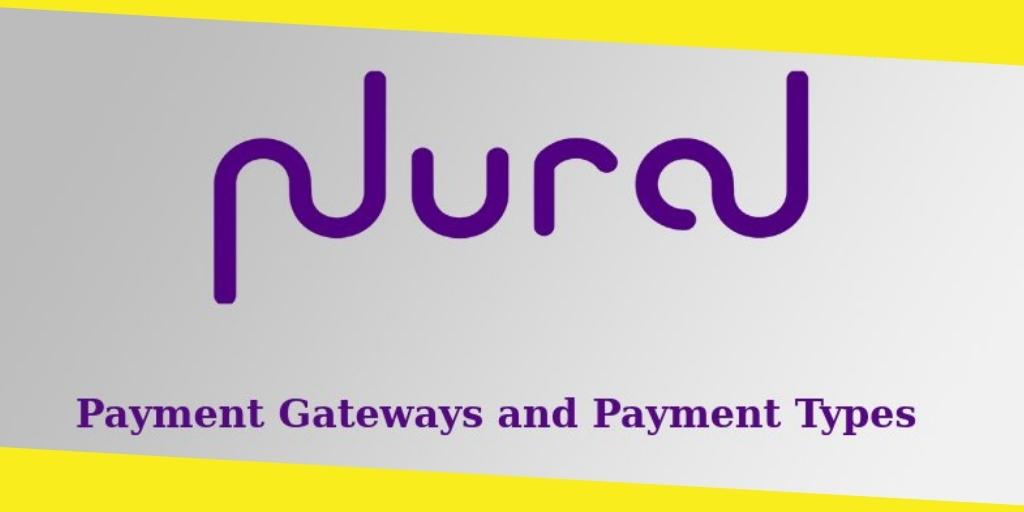Payment Gateways and Payment Types
This post was last updated on January 19th, 2022
A payment gateway is a system used to process credit and debit card information, digital wallets, UPI, etc. Every business needs to have a payment gateway process in place to facilitate online transactions for their customers. For processing online transactions, a business first needs to set up a payment gateway process and then assign the gateway to payment types.

A business can use separate payment gateways for different modes of payment, which can be done using other gateways or using the same gateway but with additional credentials. It keeps the online transaction ecosystem up and running for both customers and businesses.
Contents
ToggleHow Does a Payment Gateway Work?
A payment gateway works by securing sensitive information entered by a user on a merchant site. It does so by encrypting the user’s financial data such as credit, debit card, and bank details. By using such a system, businesses can securely accept online payments through various payment modes, including digital wallets, UPI, prepaid cards, etc.
How Does a Payment Gateway Keep Information Secure?
A checkout payment gateway ensures end-to-end protection of financial data while a transaction is in process. Here’s how it helps keep data safe from prying eyes.
- The entire online transaction happens over a secure HTTPS web address.
- The system uses a signed request from the merchant, which is used to validate the authentication of the transaction request. The signed request is essentially a secret word only known by the merchant and the payment gateway.
- The payment page is secured by verifying the IP of the requesting server to detect malicious activity.
This entire process is being strengthened further using virtual payer authentication or VPA backed by acquirers, issuers, and the payment gateways.
VPA is implemented under the 3D secure protocol, which adds an additional layer of security to online transactions and helps buyers and merchants to authenticate each other more efficiently.
Benefits of a Payment Gateway
- Easy Checkout: Payment gateways offer a seamless checkout experience for customers making the entire process of online shopping a smooth and enjoyable experience.
- Promotes Impulse Purchase: Impulse purchase results in 40% of all online sales; by making the online payment process simple, online payment gateways encourage a consumer towards impulse buying.
- Increases Business Trust: Reputed payment gateways comply with the latest security standards like PCI, DSS, etc., which increases business trust among consumers by offering them a secure payment ecosystem.
Which are Some of the Popular Payment Gateways in India?
Plural Gateway
Plural payment gateway is an open and customizable payment gateway that’s user friendly and is designed to allow merchants to easily accept online payment using a variety of payment methods, including credit and debit cards, UPI, digital wallets, etc. Plural also offers multiple other products, including the Plural Console that routes the traffic to the gateway as per need.
Citrus Pay
Citrus pay supports offers a secure payment gateway for merchants to accept credit and debit cards across networks.
CC Avenue
CC Avenue supports support for six types of credit cards: JCB, MasterCard, Visa, American Express, Diners Club, and eZeClick. They offer payment pages across 18 Indian languages and can accept payments in 27 different foreign currencies.
Bill Desk
Bill Desk allows merchants to pay and receive their bills in one place. It makes paying bills easier as a lot of Indian banks supports it, and customers can also set up payment reminders and alerts to make timely bill payments.
What are the Types of Payments that Payment Gateways Accept?
- Credit and Debit Cards: This is the most common payment option accepted by all payment gateways and is very popular among both customers and merchants when buying and selling goods and services online.
- UPI: Unified Payments Interface or UPI is fast emerging as one of the most popular options for making online payments. It is a highly secure payment option and is accepted by almost every online payment gateway.
- Net Banking: Net banking works by directly debiting a customer’s bank account is a fast and secure method of making online payments. It is widely used across payment gateways in India.
- Digital Wallets: Digital Wallets like Paytm, GPay, and PhonePe allow customers to quickly make online payments and are widely used for making digital transactions among consumers. It even allows scanning QR codes on a payment page to make the transactions faster and more efficient.
- Prepaid Cards: A prepaid card allows customers to make online payments without sharing their banking or card information making it one of the safest options when transacting online. Even though it is not as popular as the other payment methods, but it’s slowly gaining popularity among the Indian consumer due to its ease of use and the security it offers.
A payment gateway process makes the entire experience of buying and selling online as seamless and secure as possible for both consumers and businesses alike.
By allowing both parties to make and receive payments through multiple modes, essentially helps drive more sales and increases the overall satisfaction levels of consumers.
If you are a business owner and are still to implement a checkout payment gateway for your customers, now you have all the more reason to do so!
Recommended For You
What Are the Benefits of Having a PAN Card for a Minor?
Most Inside
Most Inside offers high-quality recommendations and valuable updates to enhance all aspects of your life, providing premium guidance and enriching experiences.




